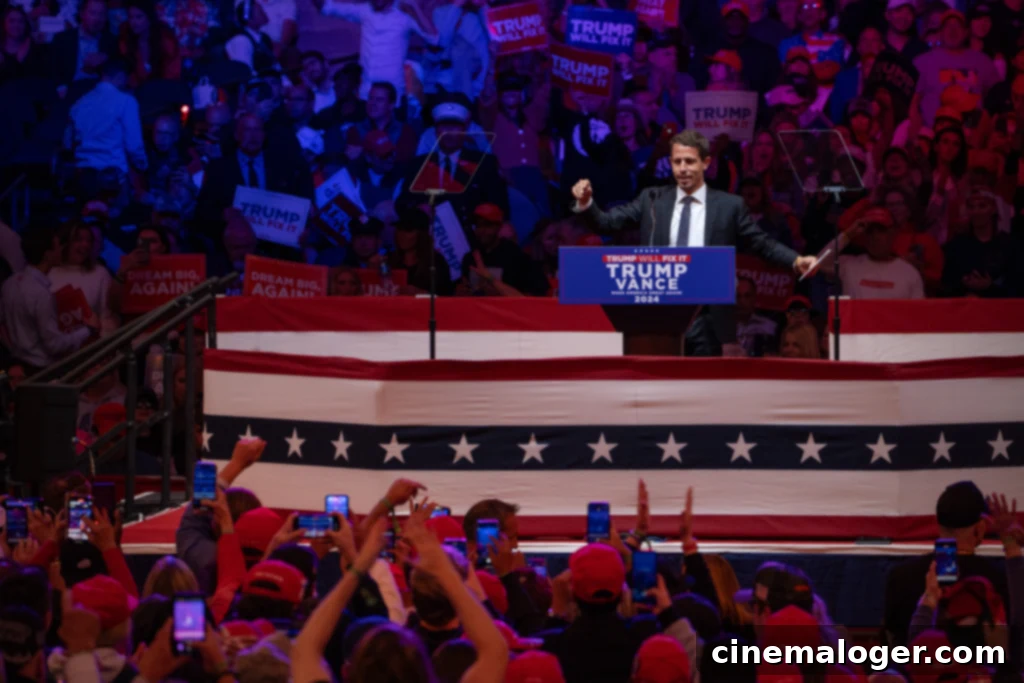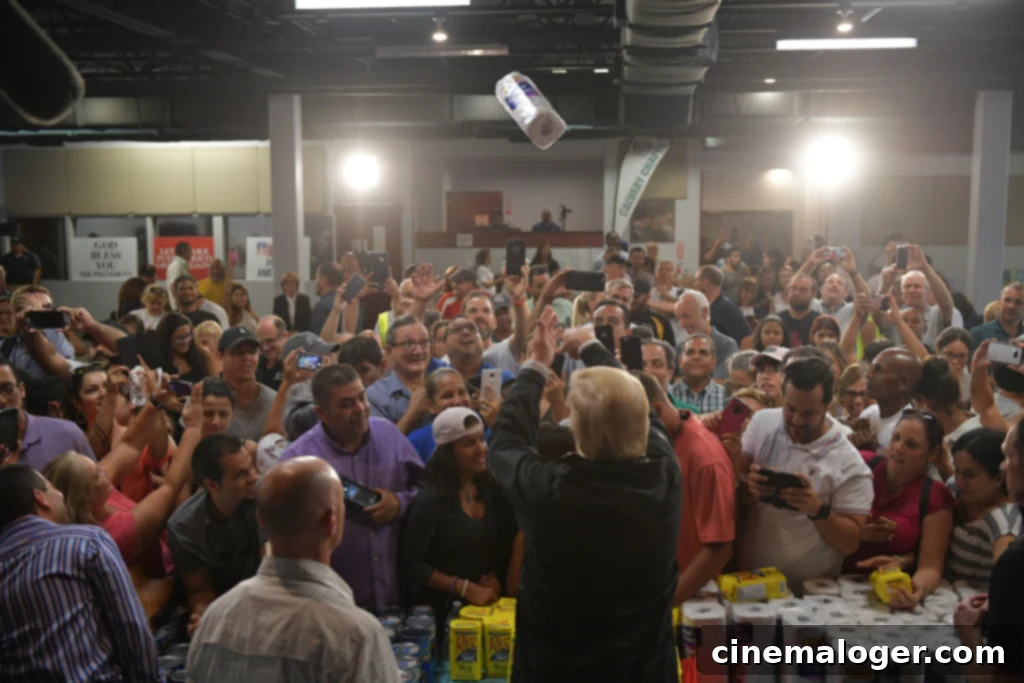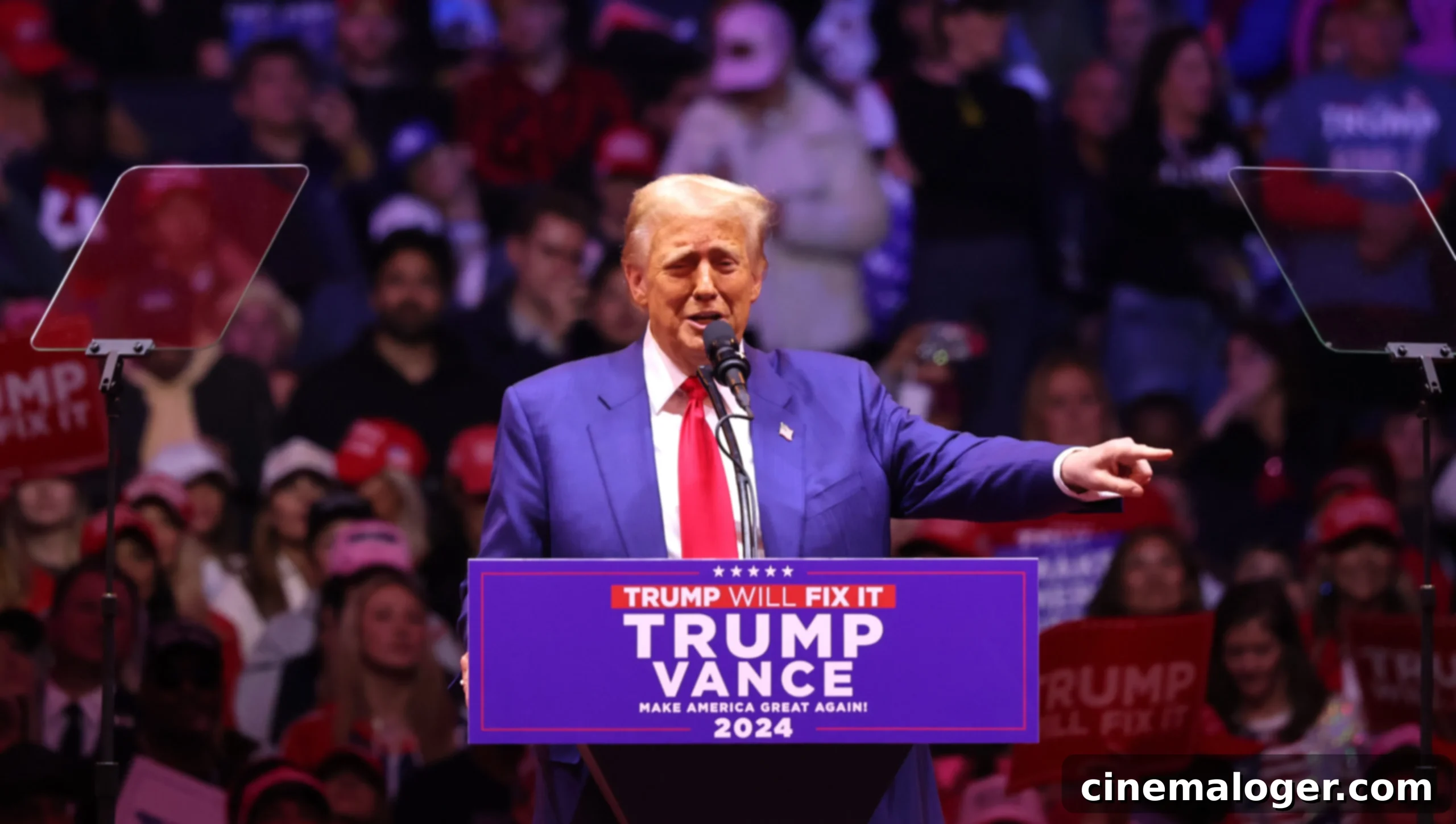Trump Rally Controversy: Unpacking the ‘Floating Island of Garbage’ Remark and Donald Trump’s Complex History with Puerto Rico
A recent political rally held by former President Donald Trump in New York at Madison Square Garden ignited a significant firestorm of controversy. The event, intended to galvanize supporters, took an unexpected turn when a guest comedian made a derogatory comment referring to Puerto Rico as a “floating island of garbage.” This remark immediately sparked widespread condemnation, drawing strong reactions from various sectors, including prominent Puerto Rican artists, political figures, and the general public. The incident has not only highlighted the sensitivities surrounding the U.S. territory but also resurfaced critical discussions about Donald Trump’s often contentious relationship with the island.
The immediate backlash was profound, with influential voices such as Grammy-winning artists Bad Bunny and Ricky Martin leading the charge in condemning the offensive statement. Their powerful platforms amplified the outrage, making it clear that such disparaging remarks against the people and culture of Puerto Rico would not be tolerated. This swift and unified response from the Puerto Rican community underscores the deep-seated pride and resilience of the island’s residents, as well as their ongoing struggle against perceived neglect and disrespect from mainland politicians.
Crucially, it was not the Republican presidential nominee, Donald Trump, who uttered the controversial words. The distinction belongs to comedian Tony Hinchcliffe, known for his “Kill Tony” show, who was performing at the rally. Hinchcliffe faced immediate and severe criticism, not only for the “floating island of garbage” comment but also for a series of jokes that many perceived as leaning heavily on racist stereotypes. The incident quickly became a focal point of debate, overshadowing other aspects of the rally and forcing the Trump campaign to address the fallout.
The Genesis of the Outrage: Tony Hinchcliffe’s Controversial Performance
Tony Hinchcliffe’s set at the Madison Square Garden rally was intended to entertain, but instead, it provoked widespread anger and accusations of insensitivity. His performance included several remarks that viewers and critics alike deemed offensive, culminating in the particularly egregious reference to Puerto Rico. The comedian’s choice of words struck a raw nerve, touching upon historical grievances and persistent stereotypes that have long plagued the relationship between the U.S. mainland and its Caribbean territory. The “floating island of garbage” comment was not just a poor joke; for many, it encapsulated a broader pattern of disrespect and dismissal directed towards Puerto Ricans, their identity, and their contributions to the United States.
The swiftness and intensity of the public’s reaction underscored the gravity of Hinchcliffe’s statements. Social media platforms erupted with condemnation, turning the spotlight onto the comedian and, by association, the political event where the comments were made. Many viewers expressed shock that such a joke would be delivered at a high-profile political rally, questioning the judgment of both the performer and the event organizers. The incident served as a stark reminder of the power of words and the potential for seemingly off-the-cuff remarks to ignite significant cultural and political backlash, especially when they perpetuate harmful stereotypes about marginalized communities.
Trump Campaign’s Swift Disavowal and Political Fallout
The controversial comments from Tony Hinchcliffe managed to draw ire from across the political spectrum, alienating not just the opposition but also prompting concern among some Republican politicians. Congresswoman María Elvira Salazar, for instance, quickly moved to clarify that the joke did not “reflect GOP values.” This swift distancing by Republican figures highlights the sensitivity surrounding issues related to U.S. territories and minority groups, especially as the political landscape intensifies ahead of crucial elections.
Given the ongoing fallout and the tight race for the presidency, coupled with the Republican candidate’s concerted efforts to court Latino voters, the Trump campaign recognized the immediate need to distance itself from the offensive joke. Senior adviser Danielle Alvarez issued a public statement clarifying the campaign’s position: “This joke does not reflect the views of President Trump or the campaign.” This rapid response aimed to mitigate the political damage, particularly among Puerto Rican communities on the mainland and other Latino demographics who might view such remarks as indicative of a broader lack of respect.

(Photo by Peter W. Stevenson /The Washington Post via Getty Images)
The incident underscores the delicate balance political campaigns must maintain when engaging with public figures and ensuring their messaging aligns with broader party values and electoral strategies. For the Trump campaign, which has been making overtures to Latino communities, the comedian’s comments posed a significant risk of undermining those efforts and reinforcing negative perceptions. The quick disavowal was a strategic move to contain the damage and reaffirm the campaign’s stance, even as the echoes of the offensive joke continued to reverberate across social media and news outlets.
Donald Trump’s Complicated Relationship with Puerto Rico: A History of Scrutiny
Donald Trump’s relationship with Puerto Rico has been, to say the least, complicated and often fraught with controversy. This complex dynamic was vividly brought back into the public discourse by Puerto Rican rapper Bad Bunny, who used his massive platform on Instagram, reaching nearly 46 million followers, to share multiple clips. These clips featured Vice President Kamala Harris discussing Trump’s perceived inaction and mishandling of the aftermath of Hurricane Maria in 2017. Harris’s poignant remark, “I will never forget what Donald Trump did and what he did not do when Puerto Rico needed a caring and competent leader,” resonated deeply with many, echoing long-held criticisms of Trump’s federal response.
The criticisms leveled against Trump regarding his post-Hurricane Maria response are extensive. Many, including Harris and numerous other critics, accused him of abandoning the island, attempting to block crucial aid, and offering little more than symbolic gestures, infamously exemplified by the “paper towels” incident. Harris’s commentary continued, stating, “He abandoned the island, tried to block aid after back-to-back devastating hurricanes, and offered nothing more than paper towels and insults.” This narrative of neglect and disrespect has become a significant component of how Trump’s legacy is viewed in Puerto Rico and among its diaspora.

Nearly two weeks after Hurricane Maria thrashed through the US territory, much of the islands remains short of food and without access to power or drinking water. / AFP PHOTO / MANDEL NGAN (Photo credit should read MANDEL NGAN/AFP via Getty Images)
The aftermath of Hurricane Maria in 2017 was catastrophic for Puerto Rico. Coming on the heels of Hurricane Irma, Maria caused widespread devastation, leading to thousands of deaths and a complete collapse of the island’s infrastructure, including prolonged power outages that lasted for months in many areas. Trump’s visit to the island shortly after the disaster was met with mixed reactions, largely defined by the controversial moment when he was seen tossing paper towels into a crowd of hurricane survivors. This act was widely perceived as dismissive and disrespectful, overshadowing any genuine efforts at support. Despite the overwhelming evidence of suffering and slow recovery, Trump later sought to characterize his administration’s handling of Hurricane Maria as “an incredible, unsung success” in 2019, a statement that further fueled public outrage and solidified the perception of a disconnect between his administration and the reality on the ground in Puerto Rico.
This history of perceived indifference and contentious remarks has created a deep rift between many Puerto Ricans and Donald Trump. For many on the island and in the diaspora, the comedian’s “floating island of garbage” comment served as a painful reminder of these past incidents, reinforcing a feeling of being undervalued and misunderstood by leadership in Washington D.C. The ongoing recovery efforts in Puerto Rico continue to be a sensitive topic, and any perceived slight or disrespectful comment, especially from those associated with political campaigns, is met with intense scrutiny and resistance.
Can Puerto Ricans Vote for President? Understanding the U.S. Territory Status
The political status of Puerto Rico as a territory of the United States often leads to questions about its residents’ voting rights in federal elections. As a U.S. territory, Puerto Ricans residing on the island cannot vote in U.S. presidential elections. This restriction is primarily due to the provisions of the Electoral College, which allocates electoral votes to states, not territories. Consequently, while Puerto Ricans are U.S. citizens, their inability to cast a ballot for the President and Vice President while living on the island is a significant point of contention and a symbol of their unique political standing.
However, the situation is more nuanced for Puerto Ricans who relocate to a U.S. state. If they are registered in any of the 50 U.S. states or the District of Columbia, they regain their eligibility to vote in presidential elections, either by casting an absentee ballot from their registered state or by traveling to that state to vote in person. This distinction highlights the unique challenges faced by Puerto Ricans, who are American citizens but lack full representation and voting power enjoyed by residents of states.
While voters in Puerto Rico and other U.S. territories—such as the Virgin Islands, Guam, and American Samoa—cannot directly participate in the general election in November, both the Democratic and Republican Parties extend an opportunity for them to select delegates. These delegates then represent their respective territories at the national nominating conventions. This participation allows territories to have a voice in the party-level selection of presidential candidates, even if their residents cannot cast a ballot in the general election itself. The ongoing debate about Puerto Rico’s future political status—whether it should become a state, remain a commonwealth, or pursue independence—is often tied to these discussions of voting rights and full representation, as many advocate for equal political participation for all U.S. citizens.
The controversy ignited by the “floating island of garbage” comment serves as a powerful reminder of the complex and often sensitive relationship between the U.S. mainland and Puerto Rico. It underscores not only the historical grievances and ongoing challenges faced by the island but also the urgent need for respectful dialogue and a deeper understanding of Puerto Rico’s unique identity and political status within the American framework.
